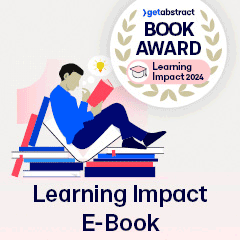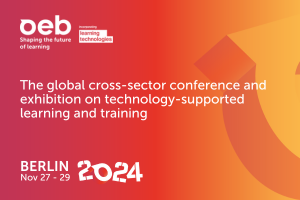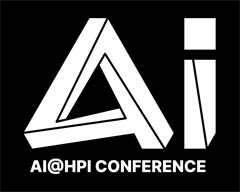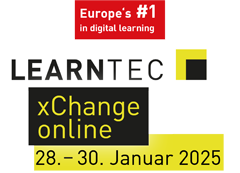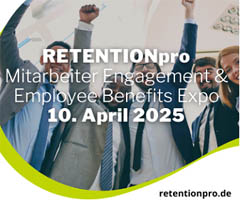Regional Competition Held in Bucharest
Bucharest (RO), October 2007 - (by Elena Lita) To encourage creativity by putting the theories of entrepreneurship into practice, Intel Education and the University of California at Berkeley have recently sponsored the second edition of the regional competition for business plan in the high-tech area - NOVATech Com 2007. The competition was organized by the Bulgarian Institute for Management and Technology (BIMT) in cooperation with the Romanian ICUBE Association, the Bulgarian ICT Cluster, and the Sofia University.
The purpose of the competition is to encourage new thinking and innovative ideas among students in the technology field. This year's edition took place in Bucharest on October 5.
NOVATechCom is a business plan competition in Central and Eastern Europe (CEE) - part of the worldwide competition IBTEC (Intel Berkeley Technology Entrepreneurship Challenge) sponsored by the technology giant Intel and the University of California at Berkeley. The competition aims to give students, alumni, and local entrepreneurs the opportunity to work together to turn innovative ideas into successful businesses.
The Intel Berkeley Technology Entrepreneurship Challenge is the place where the best engineers and scientists demonstrate how they plan to make the world a better place through their innovations and entrepreneurial skills. The Challenge partners with the best research institutions around the world and affiliates with regional business-plan competitions to find the technologies and teams that can have the greatest impact.
In its inaugural year, 2005, teams came from Mexico, Russia, Singapore, and the United States. Year after year, these competitions have helped to identify and promote promising business ideas through the education and exposure afforded by the competition's events, mentors, and judges.
The NOVATech Com presents business opportunities that have the greatest potential for a positive impact on society through the commercialization of new and truly innovative technologies. This year's participants showcased innovative projects in the following areas: semiconductors, manufacturing and hardware, mobile and wireless, digital home and consumer electronics, retail and consumer software, enterprise software and IT, energy and power generation, nanotechnology, and biotechnology.
The projects that qualified for the semifinals in Bucharest were presented alongside a business plan that makes integral use of novel technology. The projects were evaluated by a jury comprising international and regional experts from the academic and business sector.
The criteria for judgment were structured to select the business opportunity with the greatest impact through the deployment of new technology. Emphasis was placed on the deployment of emerging and innovative technology products and services, which have a high likelihood of generating significant benefits for all stakeholders, both investors and the broader industry ecosystem. But above all, the organizers wanted to stimulate innovative thinking in the universities and to facilitate the cooperation between students and investors in technology.
The contest in Bucharest drew teams from Bulgaria, the Czech Republic, Romania, Hungary, Poland, Slovakia, and Israel. The US$20,000 first prize awarded by Intel Education went to an Israeli project called Negev Renewable Green Fuels (NRG Fuels). It was accepted by team members Avi Avidan, Daniel Eisen, Roee Arbel, Noga Bar-El, and Professor Shosh Arad. Prof. Arad is of the world's most prominent researchers of algae. NRG Fuels is a clean-tech developer of innovative microalgae growth technology for biodiesel production. Utilization of NRG's closed system for microalgae growth will reduce biodiesel production cost by 40%.
In addition, NRG Fuels' system has an output capacity per area of land that is nearly fifteen times higher than the best agricultural feedstock. The second prize, US$10,000, was awarded to members of the Hungarian team Attila Berces, Zoltan Zinner, Andrew Chu, and Ivan Bangov. Their project, Chemistry Logic, enables chemists to search interactively for chemically similar compounds in databases of ten million to a hundred million compounds with a ten-fold performance increase compared to current published competitor benchmarks.
The first and second winners of the CEE competition will have the chance to present their innovative ideas at UC Berkeley during the world finals of the Intel Berkeley Technology Entrepreneurship Challenge, 13-15 November 2007.
 2024 neigt sich dem Ende zu und damit starten die Vorbereitungen für das nächste Jahr. Welche Trends werden in 2025 die L&D Branche prägen? Was sind die größten Herausforderungen für Personalentwickler:innen und wie können sie ihnen begegnen? Nehmen Sie sich fünf Minuten Zeit!
2024 neigt sich dem Ende zu und damit starten die Vorbereitungen für das nächste Jahr. Welche Trends werden in 2025 die L&D Branche prägen? Was sind die größten Herausforderungen für Personalentwickler:innen und wie können sie ihnen begegnen? Nehmen Sie sich fünf Minuten Zeit!



